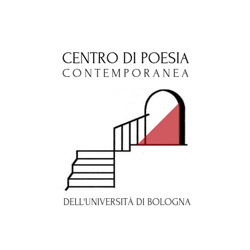With Rimbaud in my heart
At the heart of our time, there’s a night, a vertigo. As there was Dante’s journey, so now there is the journey of Rimbaud. There is, in the heart of our time an “insignificant” (“adolescent” say those who, protected by an assumed maturity, want to dodge its blows) night or season in Hell. In the heart of modernity (and of what it brings into question) there’s a poet in hell. There already was one, of course. In fact, there was a poet in hell-purgatory-paradise. But now that we are distanced from the fear and trembling in front of Mystery that the Christian era recognized in all circumstances, now that the heart marvels at the smoky streets of the city, marvels at absinthe and at the metaphysical revolution (and since the refuge of an education by now respected only formally has been destroyed), now the heart suffers from boredom with itself and when it reaches the threshold of the unknown it “collapses” and loses the sense of “visions” that open up to it there as he says in the famous “letter of the seer.” It is not by chance, as we are taught by the greatest living Italian poet, that the young poet of Charleville is the only one who can draw near to the Florentine exile with a special kind of proximity-distance relationship. They are two poets, two journeys where the author and the character coincide, where, that is to say, experience counts. And in this place all presumed truths are put to the test of experience. Because of this they are closer to the reader. It should not be forgotten that A Season in Hell (“relation d’un combat spirituel”) is the only book that Rimbaud expressly wanted published. A vertigo in the heart of Europe, a coming and going that is always seeking, a continual leaning towards the possible. There’s a man “mystique à l’état sauvage” who, the day before his death asks the Messaggeries Marittimes what time he should be carried on board to set off again. If it’s true that intellectual pride was the poison that closed the human heart and reason to a sense of mystery, if it’s true that Baudelaire marks the beginning of modernity because he sings of Ennui and a tragically “dual” life with the splendid dirge that many will join (but with less sorrow and more philosophy), it is undeniable that the most moving poetic renderings of those same bored, drugged hearts are to be found in Rimbaud’s Season in Hell. There everything “surrenders.” In that “pagan book” an infirm and perverse gesture sets before us every kind of crisis — that of religion, of love, of science, of memory, of dream, of art – and subjects them to his methodical, yet split-second, test. None of these elements of human experience seem to be capable of helping Rimbaud approach his “destiny of happiness,” to that “salut” which is as desired and imagined as it is mysterious. Clearly the boy is inside a catastrophe, like Hamlet, notes Bonnefoy. “The angels” wrote a young and acute reader of Rimbaud, “know immediately and since always.” Everything surrenders because nothing is enough for the man in search of himself. “I want liberty in salvation. How am I to pursue it?” Exactly in the place where it seems the most dense obscurity of signs and words is felt, the sense of them makes itself clear and self-evident. Rimbaud is anything but obscure. He declares immediately the “key” with which to recapture lost innocence: “charity is this key.” Immediate, precise, almost Paul-like, that is, exactly like St. Paul in his “hymn” (a scandalous climax for another of the poètes maudits, for George Trakl, and for our own Pasolini; it would be interesting to study the strange attraction between Saint Paul and the extremities of literature). A heartbreaking affirmation because of the impossibility that such a key might actually be able to be used and is not simply a dream. In the verses of Rimbaud there’s a “method to nail down our words and our experience of the world to colors.” He does not confront any new themes. He speaks about what everyone speaks about. He turns out to be more useful than Socrates in terms of understanding, today, something of ourselves. Rimbaud who believed everything around him to be of himself, tends toward the motion of leaving. His journey will be neither one of descent, nor an itinerarium mentis, nor a journey around his room. As if to pin down a great and simple allegory, his visionary wandering will end in a journey that is wrapped in mystery. The journey to Africa, more than a post-literary act or a definite rebellion, is none other than the mirror of poetry in its descent into hells, in the groping for things and people in the constant search for “salut” in liberty. “Mon sort dépende de ce livre” he apparently said. He’s a typical rebel, they say, exactly because he didn’t deal with new themes. It’s true. But like Van Gogh, he put – or better, he surprised – things in a light from which they’ll escape only with difficulty. An extreme light that we perceive only in glimpses, confusedly. The light of “faiblesse.” “European culture” wrote Mario Luzi in a good essay on Rimbaud “to which moreover we send the reader who wishes to follow in lapidary detail the kinships and correspondences between the poet of A Season in Hell and the situation of poetry in Italy and Europe, to be quite frank, feels the lack of heresy.” Already Baudelaire had demonstrated an “enormous capacity for suffering” (Eliot). He had restored citizenship to the profound sense of original sin, to that entropy or “fall” that concerns every “élan” and every “beauté.” Most of all in Rimbaud it is not a question of a morbid complacency towards “the limit.” In fact the more acute the perception of a “salut” promised by life (the festival of youth), the more the lack …



